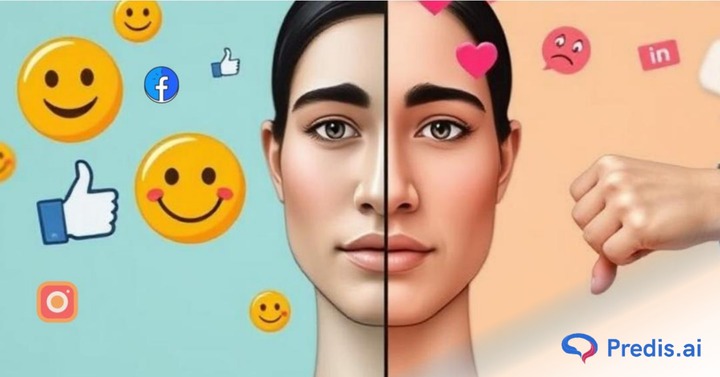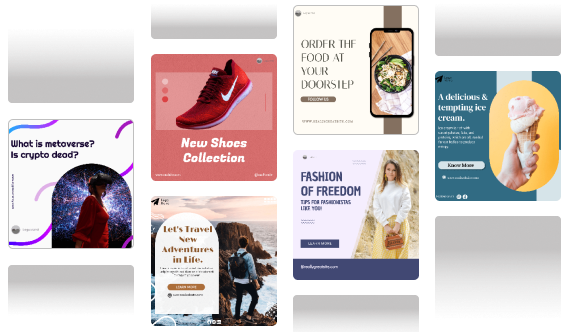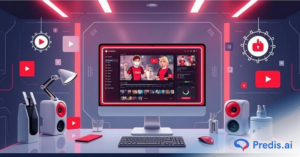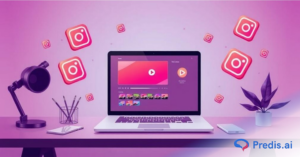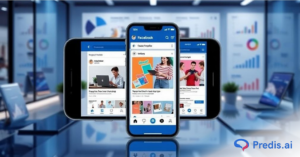In today’s digital era, social media is no longer just a platform for connection, it’s a parallel universe where individuals, brands, and ideas thrive. With over 5 billion active users globally, social media has cemented itself as an essential part of modern life. Whether it’s sharing life updates, launching global campaigns, or building virtual communities, its influence is undeniable.
From transforming how businesses market their products to redefining how we consume news and interact with society, social media has reshaped communication on a global scale. Platforms like Instagram, TikTok, LinkedIn, and X (formerly Twitter) now serve as vital tools for branding, education, activism, and even healthcare awareness.
However, with great connectivity come complex consequences. As social media continues to evolve—driven by AI, algorithms, and immersive experiences- it brings both remarkable advantages and notable disadvantages.
In this blog, we dive deep into the advantages and disadvantages of social media ad campaign, helping you understand how to harness their power while staying mindful of their pitfalls. Let’s understand more about the Advantages & Disadvantages of Social Media.
The Evolution of Social Media
Over the past decade, social media has undergone a radical transformation. What began as simple platforms for photo sharing and status updates has evolved into a powerful digital ecosystem that influences nearly every aspect of our lives—from how we connect and shop to how we learn and express ourselves.
In this era, social media is driven by cutting-edge technologies like Artificial Intelligence (AI), Augmented Reality (AR), and Virtual Reality (VR). AI now curates hyper-personalized content feeds, predicts user behavior, and powers smarter ad targeting. Meanwhile, AR filters and VR-based social spaces have introduced immersive experiences, turning traditional scrolling into interactive storytelling.
Another defining shift is the dominance of short-form content. Platforms like TikTok, YouTube Shorts, and Instagram Reels have revolutionized how content is consumed—snappy, visual, and algorithm-boosted. This trend favors authenticity, creativity, and fast-paced engagement, catering especially to Gen Z and Gen Alpha audiences.
At the same time, we’re witnessing the rise of niche platforms and creator-driven ecosystems. Communities are now more focused, catering to specific interests, professions, or values. Creators are no longer just influencers—they’re entrepreneurs, educators, and entertainers with dedicated audiences and monetization tools at their fingertips.
As social media continues to innovate, its evolution is not just technical, it’s cultural. It’s reshaping attention spans, redefining identity, and rewriting the rules of communication in the digital age. Let’s understand about Advantages & Disadvantages of Social Media.
Top Advantages of Social Media
As per Medallia, the digital world is more interconnected than ever, and at the heart of this transformation lies social media. Its benefits will extend beyond casual conversations, offering real value to individuals, businesses, and society. Let’s explore the top advantages of social media.
a. Enhanced Connectivity and Communication
One of the most significant advantages of social media is its ability to connect people across borders in real time. Whether it’s staying in touch with family abroad or participating in global events, social media tactics-such as targeted messaging, hashtags, and live streaming-enable instant communication with just a few clicks.
Today, community building has reached new heights. Users are forming niche groups based on shared interests, passions, and identities, fostering deeper, more meaningful online interactions. From hobby clubs to professional networks, these digital spaces offer a sense of belonging like never before.
b. Digital Marketing and Brand Growth
For businesses and entrepreneurs, social media is a goldmine. Advanced AI algorithms now allow hyper-targeted social media advertising, ensuring that content reaches the right audience at the right time.

Moreover, the rise of influencer and micro-influencer marketing has opened new avenues for brand partnerships. A digital marketing expert can help brands identify the right creators who bring authenticity and audience trust, making it easier to connect with consumers more organically.
c. Access to Information and Learning
Social media has become an unconventional classroom. From quick tutorials to full-fledged educational series, platforms are rich with skill-based learning and live webinars accessible to anyone with an internet connection.
It also serves as a primary source of real-time news and updates, often faster than traditional media channels. Whether it’s global events, tech trends, or health alerts, users stay informed in the moment. Rather than replacing a degree, these platforms often spark curiosity and supplement academic pathways, shaping how students view the benefits of going to college in the first place.
d. Career Opportunities and Networking
Social media platforms like LinkedIn, X (formerly Twitter), and Instagram have become powerful tools for career advancement. Professionals use them for job hunting, networking, and personal branding.

The creator economy has also flourished. With monetization tools integrated into platforms, individuals can now build careers as content creators, educators, and influencers—turning passion into profit.
e. Social Awareness and Activism
Different types of social media play a crucial role in driving social change. It amplifies marginalized voices, spreads awareness about global issues, and encourages civic engagement.

Fundraising efforts, advocacy campaigns, and digital activism have all become more impactful through shareable content, hashtags, and storytelling. It’s not just a communication tool-it’s a catalyst for social transformation.
Key Disadvantages of Social Media
While the benefits of social media are vast, its rapid evolution has also introduced a range of serious challenges. In understanding the full picture of the advantages and disadvantages of social media, it’s crucial to examine the darker side of this digital phenomenon.
a. Privacy Risks and Data Breaches
As social media becomes more immersive and personalized, risks to user privacy and the potential for credential compromise are increasing. With advanced tracking, facial recognition, and data collection tools, platforms often gather more information than users realize. This data is frequently shared with third parties, raising major concerns about surveillance, exploitation, and the importance of cybersecurity for social media.
In addition, the rise of deepfake technology has made it easier than ever to manipulate identities. From fake profiles to synthetic media, users face growing threats of identity theft and digital fraud. A reliable identity theft protection service with AI fraud detection capabilities can help protect your personal data from emerging threats. The NordProtect review explores key features and potential concerns around such services.
Beyond personal identity protection, organizations that build or rely on AI-driven social platforms also need to secure the underlying systems themselves. Implementing dedicated AI security tools helps security teams monitor how models are used, detect abuse patterns, and reduce the risk that compromised algorithms will amplify harmful or fraudulent content.
b. Mental Health Concerns
Social media’s influence on mental well-being continues to be a pressing issue. The constant chase for likes, shares, and approval fosters anxiety, FOMO (fear of missing out), Advertising appeal and validation loops—contributing especially to the growing need for teen depression treatment among younger users.

AI-generated content and filters have intensified the comparison culture, presenting an illusion of perfection that can negatively impact self-esteem and body image.
c. Spread of Misinformation
One of the most dangerous disadvantages of social media is its role in the rapid spread of misinformation. Nowadays, AI-generated fake news and manipulated visuals are more convincing and widespread than ever.
Social algorithms often reinforce existing beliefs, creating echo chambers that contribute to social division and political polarization. This makes it difficult for users to access diverse perspectives or verify the truth.
d. Cyberbullying and Online Harassment
Despite efforts to curb harmful behavior, cyberbullying remains a serious issue. Trolls and harassers now use more sophisticated tactics, making online spaces hostile for many users. As part of broader awareness initiatives, a cyber security course can help individuals understand how to identify, prevent, and respond to such online threats more effectively.
Regulating such behavior across vast digital platforms is still a major challenge. Inadequate social media moderation systems often fail to protect vulnerable users from repeated abuse or targeted attacks.
e. Decreased Productivity
With endless scrolling, instant notifications, and algorithm-driven engagement, social media is designed to be addictive. This addictive nature affects concentration, time management, and productivity—especially in academic and professional settings.
Many users find themselves mindlessly browsing during work hours or study time, leading to reduced efficiency and increased procrastination.
Social Media for Businesses: Pros & Pitfalls
In today’s world, social media is no longer optional for businesses—it’s essential. From startups to global enterprises, brands are using social platforms to connect, sell, and grow. However, this powerful tool comes with both promising opportunities and critical challenges when it comes to the Advantages & Disadvantages of Social Media. That’s why many brands choose to partner with a social media marketing agency to navigate the complexities and maximize their impact across platforms.
Pros: Unlocking New Avenues for Growth
Social media has become a dynamic hub for branding, customer engagement, and e-commerce. Companies use platforms like Instagram, LinkedIn, Facebook, and TikTok to:
- Build brand identity through consistent visual storytelling and voice
- Provide real-time customer support, improving satisfaction and trust
- Drive sales directly through integrated shopping features and social commerce
- Reach targeted audiences with precision via AI-powered ad tools
- Partner with influencers to create authentic content and expand reach
Pitfalls: Navigating the Risks
However, with high visibility comes high vulnerability. One of the major disadvantages of social media for businesses is the risk of reputation damage. A single negative comment, poor review, or controversial post can spiral into a PR crisis in minutes.
The rise of cancel culture and rapid public judgment puts brands under constant scrutiny. Businesses must be hyper-aware of their messaging, values, and responses to avoid backlash.
Additionally, growing dependency on algorithms poses another risk. When platforms change how content is prioritized, businesses may suddenly see drops in reach and engagement—often without warning. Relying too heavily on one platform or strategy can leave brands exposed to digital instability.
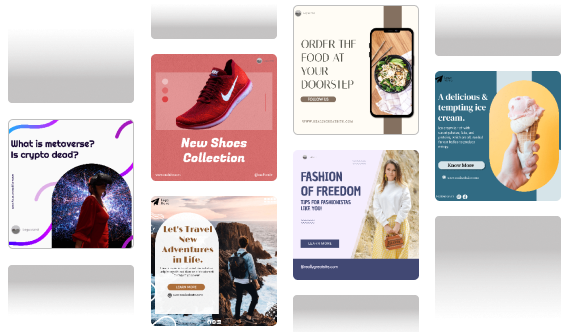
The Future Outlook: Can We Strike a Balance?
As we look ahead, one pressing question remains on Advantages & Disadvantages of Social Media: Can we continue to enjoy the advantages of social media while minimizing its disadvantages? The answer lies in building a more conscious, ethical, and empowered digital culture.
The Power of Digital Literacy
Digital literacy will be more essential than ever. Teaching users how to identify misinformation, manage privacy settings, and engage respectfully online is key to a healthier social media environment. Whether in schools, workplaces, or homes, fostering media literacy can equip users to make informed, responsible choices.
Healthier Usage Tools and Features
Tech companies are also stepping up by offering built-in tools that promote digital well-being. Features like screen time tracking, mental health prompts, content filters, and focus modes are helping users take control of their online habits. These innovations encourage mindful scrolling, reduce burnout, and create space for real-world engagement.
A growing area of focus is content filtering for schools, which ensures students can access educational material while staying protected from harmful or distracting content.
Regulation and Responsibility
Governments and platform owners play a crucial role in shaping the future of social media. There’s growing pressure for more ethical policies around data usage, algorithm transparency, content moderation, and user safety. Striking the right balance between innovation and regulation is vital to prevent exploitation while preserving freedom of expression.
Conclusion
Social media stands as a double-edged sword, a tool of immense power, yet one with undeniable pitfalls. It connects billions of people, fuels businesses, educates minds, and drives social change. At the same time, it can erode privacy, distort reality, and impact mental well-being if left unchecked.
As the digital landscape continues to evolve, the way we use social media must evolve with it. Conscious, intentional usage is no longer a choice, it’s a necessity. Whether you’re an individual, a brand, or a policymaker, understanding the broader implications of your online presence is key to thriving in a hyper-connected world.
Mastering the Advantages & Disadvantages of Social Media isn’t just about using the platforms, it’s about navigating them wisely. With awareness, responsibility, and the right tools, we can harness social media’s full potential while safeguarding our digital lives.
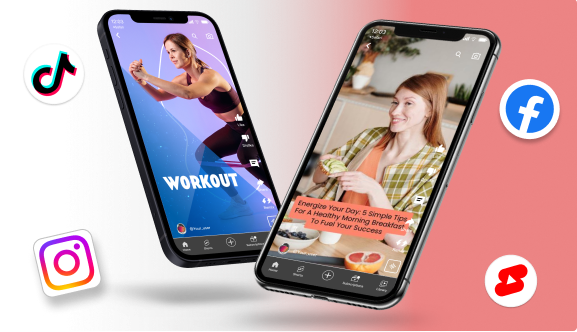
Frequently Asked Questions
What are the main advantages of social media?
The main advantages include enhanced global communication, business marketing opportunities, access to real-time information, personal branding, remote learning, and increased social awareness.
What are the biggest disadvantages of social media today?
Key disadvantages are data privacy concerns, misinformation, mental health issues, cyber-bullying, and reduced productivity due to excessive screen time.
How has social media evolved in 2025 compared to earlier years?
Social media in 2025 is more immersive, driven by AI, AR/VR, and short-form content. Platforms are increasingly personalized, and the creator economy is more monetized than ever.
Is social media good or bad for mental health?
It can be both. While it fosters community and support, overuse or negative interactions may contribute to anxiety, depression, and self-esteem issues, especially among younger users.
How will businesses benefit from social media?
Businesses use social media for hyper-targeted advertising, influencer marketing, customer engagement, and building brand visibility, helping them reach niche audiences faster and more efficiently.
Can social media be used safely and responsibly?
Yes, by practicing digital literacy, setting boundaries, avoiding oversharing, and using privacy settings wisely, users can enjoy the benefits while minimizing the risks.
What are the risks of relying too much on social media?
Overreliance can lead to addiction, distorted self-image, social isolation, and exposure to harmful content or misinformation.
How can I reduce the negative effects of social media?
Set time limits, follow positive and educational accounts, take regular digital detoxes, and avoid toxic comment sections or content that affects your mental well-being.
What role will AI play in social media?
AI powers content recommendations, ad targeting, chatbots, sentiment analysis, and even content creation-making platforms more personalized but also raising ethical concerns.
Will social media continue to grow in the future?
Yes, social media is expected to keep evolving with new technologies, offering even more integration into daily life, especially through virtual experiences, e-commerce, and real-time interaction.


